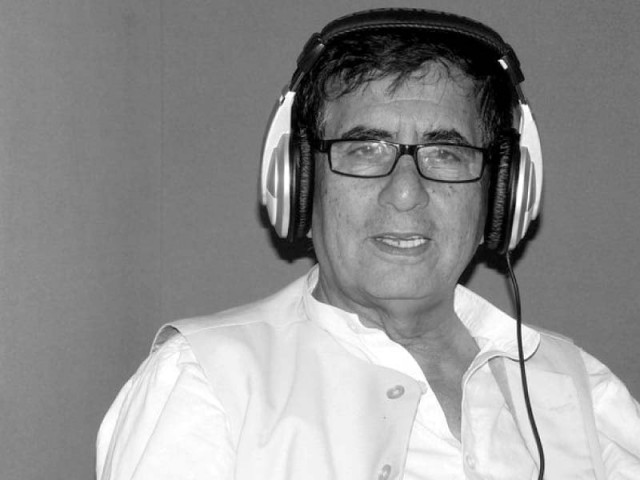Renowned Pashto writer Nisar Muhammad Khan passes away
Nisar helped preserve old Pashto music by recording artistes

Nisar Muhammad Khan
The 76-year-old was laid to rest at his ancestral graveyard in Shah Mansoor by thousands of mourners on Friday.
Nisar was a broadcaster by profession and was associated with Radio Pakistan until he retired in 2001 as a station director.
Fakhar-e-Alam urges security officers to respect local citizens
Known for taking on the challenging work of studying and researching culture, his main interest was folk music, film and drama earning him the moniker of ‘music and culture expert’.
He wrote multiple books on Pashto music and culture. One of these books was the English language manuscript ‘Exploring Melody’ where he explored the history of past folk singers as well the musical instruments used in South Asian music over the past 100 years. His other book on music, ‘Spin Tambal’, also discussed the history of Pashto folk music. He has also written a book in Urdu called ‘Aghosh-e-Kausar’.
During his time with the national radio broadcaster, Nisar explored the hidden musicians and recorded their work. This can now be found in the Radio Pakistan library at its Peshawar centre.
Apart from pursuing his passion of recording the history and evolution of Pashto music, Nisar also produced dramas for Radio Pakistan.
In 1973, he was told to take over the drama section of Radio Pakistan in Peshawar. He not only produced drama but wrote scripts for them as well.
During his stint in the section, he is said to have worked on and created around 150 dramas in which he worked to highlight the culture and issues of the common man.
He has also worked as an actor is a few famous radio and television dramas.
Radio Pakistan sent him to the Netherlands in 1975 to study modern drama art.
After he retired, the Radio Pakistan in 2002 handed him the award for best drama writer.
Momina Mustehsan criticised for 'looking too pretty' while battling depression
Having established himself as a drama writer, Nisar also dabbled in films and wrote his first Pashto film in 1973. He went on to pen Orbal, the second Pashto film and the movie which first brought him fame. He followed it up with 52 other memorable films which spanned the golden era of Pashto films.
“It was his idea that a directorate should be formed, like other government departments, which would work for Pashto culture and all those associated with culture,” said Aslam Khan, the author of The Forgotten Voice, a book on past Pashto musicians.
Aslam, who worked closely with Nisar in exploring and recording old musicians, said that Nisar’s Radio Pakistan Peshawar programme ‘Yao Zal Bia Pa De Laar Rasha’, where he invited and spoke with forgotten musicians of the province was a cultural asset which now sits in the Radio Pakistan record.
Published in The Express Tribune, September 8th, 2018.



















COMMENTS
Comments are moderated and generally will be posted if they are on-topic and not abusive.
For more information, please see our Comments FAQ